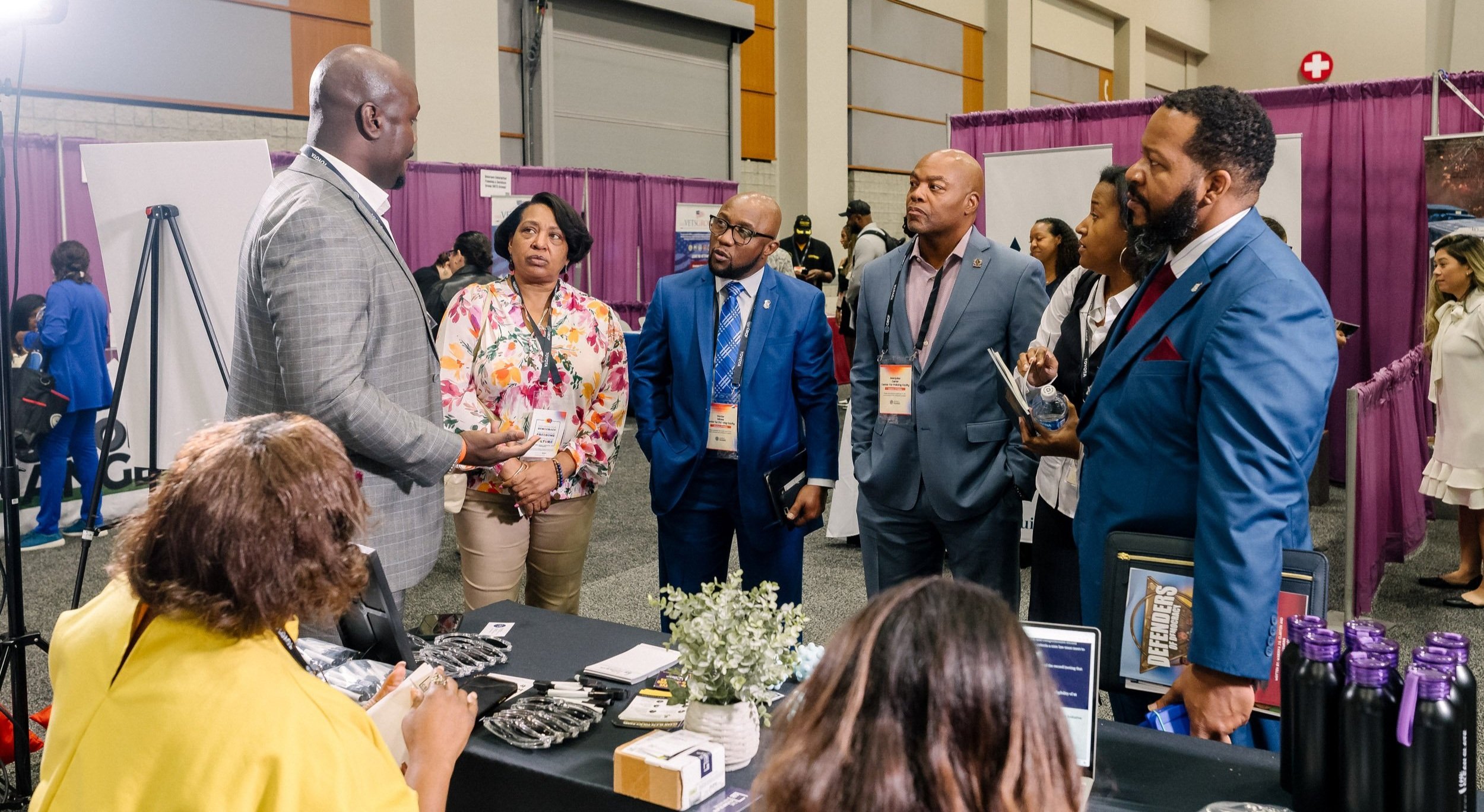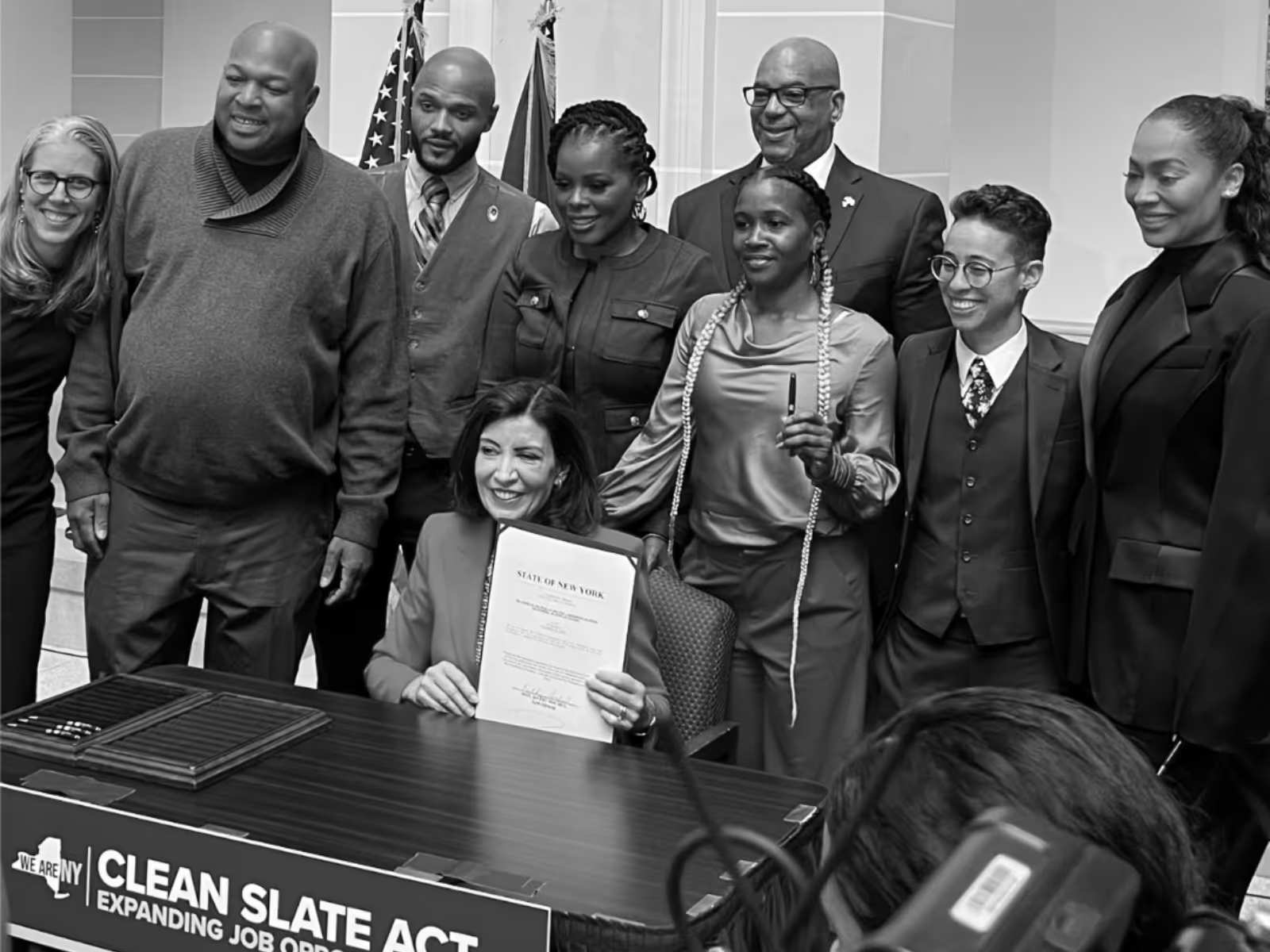The Clean Slate Initiative Staff Guide
for Tabling at Events

A Tabling Guide for CSI Events
Initiate with a Warm Welcome
Be friendly, smile, make eye contact, and invite people to engage. A welcoming approach starts things on the right note.
Make a Personal Connection
Begin with a simple question about them (e.g., “Where are you from?” or “What do you do for work?”) to get them talking and open up opportunities for connection.
Prompt with Open-Ended Questions
Ask open-ended questions and listen closely for clues that connect to CSI’s work, creating a bridge between their interests and our mission.
Align and Build on Shared Interests
Use what they’ve shared to discuss how CSI’s work aligns with their values or concerns, sparking meaningful engagement.
Call to Action
Offer a way to make an impact right at the table, whether by signing a petition, completing a survey, joining a mailing list, or engaging in an activity.
Thank and Confirm Next Steps
Express gratitude for their interest, confirm any next steps, and let them know how they’ll stay connected with CSI.
Calls to Action
NLADA
.png)
Take Legal Advocate Survey
.png)
Sign up for our monthly Newsletter
Common Questions
CSI is a non-partisan, nonprofit organization that works to pass laws that streamline the process the sealing eligible records for people who have completed their sentence and meet the requirements, which includes remaining crime-free for a period of time.
We do this by engaging bipartisanship, supporting robust coalitions, and taking the long view to advance policies that advance racial equity and advance a redemption narrative. At the core of all of this is a centering of directly impacted people, making sure that those closest to the problems are part of creating the solutions.
Since 2018, twelve (12) states have passed Clean Slate legislation, and which has led to…
15 million people bering eligible for full or partial record clearance, and of those…
14 million are in line to have a fully cleared record.
To date, 12 states have passed Clean Slate legislation -
- Pennsylvania (2018)
- Utah (2019)
- New Jersey (2019)
- Michigan (2020)
- Connecticut (2020)
- Delaware (2021)
- Virginia (2021)
- Oklahoma (2022)
- Colorado (2022)
- California (2022)
- Minnesota (2023)
- New York (2023)
CSI has a set of minimum policy standards for Clean Slate laws. The criteria offer states the flexibility to work within their existing standards while exploring ways to expand eligibility, aiming to enhance public safety by reducing recidivism and encouraging lawful behavior.
CSI policy minimums include:
- Automation of record clearance;
- Automatic clearance upon eligibility of the record (noting that eligibility varies from state to state);
- Inclusion of arrest records;
- Inclusion of misdemeanor records; and,
- A strong recommendation for laws to include eligibility of at least one felony record.
Quick Facts
.png)
.png)
.png)
.png)
.png)
.png)
Clean Slate in the States
To date, 12 states have passed laws that meet CSI's criteria for Clean Slate legislation. Additionally, there are active Clean Slate campaigns in many states, and grassroots work building support for future efforts are underway in states across the country.
Criteria for Clean Slate Legislation
The Clean Slate Initiative (CSI) and state-based partners build coalitions to pass Clean Slate laws at the state and federal levels. While CSI advocates for expansive and comprehensive record clearance legislation, the minimum criteria a state law must meet to meet CSI standards include:
- Automation of record clearance;
- Automatic clearance upon eligibility of the record (noting that eligibility varies from state to state);
- Inclusion of arrest records;
- Inclusion of misdemeanor records; and,
- A strong recommendation for laws to include eligibility of at least one felony record.
PEOPLE FIRST LANGUAGE
Words wield power. For individuals who have navigated the complexities of an arrest or conviction record, the weight of language can be particularly profound. Labeling someone solely as a "felon," "convict," or "offender" risks reducing them to a single moment in their past, overlooking their individuality, and neglecting their potential for growth and contribution. The chart below offers suggestions on how to use people-first language when writing about the issue of automatic record clearance.
About The Clean Slate Initiative
CSI is a non-partisan, nonprofit organization that works to pass laws that streamline the process of sealing eligible records for people who have completed their sentence and meet the requirements, which includes remaining crime-free for a period of time.
Our Approach
Centering Impacted People
CSI believes that those most impacted by incarceration and criminalization should be central in deciding and implementing remedies that improve their lives. Our work is rooted in the experience of directly impacted individuals.
Employing the Long-Term View
We make decisions that move us toward long-term change. We do not limit ourselves to short-term wins. We ensure Clean Slate laws are properly and fully implemented, and we do not harm the criminal justice reform movement in achieving our goals.
Engaging Bipartisanship
CSI works with stakeholders across the political spectrum who share our fundamental values that fair treatment, redemption, and access to meaningful second-chance opportunities must be available to all.
Advancing Redemption Narrative
We work to change hearts and minds. We are setting the stage for bigger, deeper, and more impactful change. To do this, we have to change how people think about people with records.
Supporting Robust Coalitions
We build and support meaningfully broad coalitions - believing we need engagement from all types of stakeholders to win. We support and empower local leaders and organizations and leave them stronger.
Building Racial Equity
We advance policies that reduce existing racial disparities in the criminal legal system.


Support Clean Slate
Your voice and action matter. Share your story to amplify the importance of second chances, or make a donation to help expand access to automated record sealing and opportunity for millions.
.avif)





